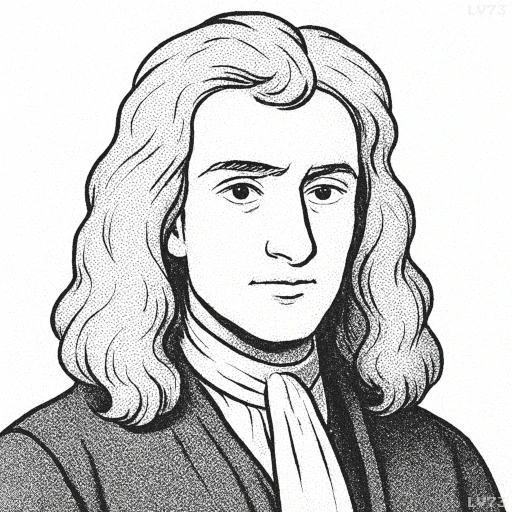“The best and safest method of philosophizing seems to be first to inquire diligently into the properties of things, and establishing those properties by experiments, and then to proceed more slowly to hypotheses for the explanation of them.”

- January 4, 1643 – March 31, 1727
- Born in England (UK)
- Natural philosopher, mathematician, physicist, astronomer, theologian
table of contents
Quote
“The best and safest method of philosophizing seems to be first to inquire diligently into the properties of things, and establishing those properties by experiments, and then to proceed more slowly to hypotheses for the explanation of them.”
Explanation
In this quote, Isaac Newton outlines an approach to philosophizing (or scientific inquiry) that prioritizes empirical observation and experimentation before moving on to speculative ideas or hypotheses. Newton is advocating for a careful and methodical approach to understanding the world. First, he emphasizes the importance of thoroughly investigating the properties of things through careful observation and experimentation. Only once these properties are clearly established should one proceed to form hypotheses—educated guesses or theoretical explanations—for how or why these properties exist or behave as they do. This method reflects Newton’s scientific methodology, where facts and evidence take precedence over unfounded speculation.
Newton’s approach is aligned with what we now call the scientific method, which involves forming a question, conducting experiments to gather data, and then developing theories or hypotheses based on the results of those experiments. His emphasis on experiments and evidence-based reasoning made a significant contribution to the shift from speculative philosophy to experimental science during the Scientific Revolution. For Newton, the key to understanding the natural world lay in careful investigation and logical reasoning that was rooted in actual evidence rather than in abstract theories.
In modern terms, Newton’s method is still considered the most reliable way to approach scientific problems. The idea of first establishing clear facts through observation and experimentation before moving on to theory is central to disciplines ranging from physics to biology to chemistry. Newton’s words remind us that scientific progress is built on a solid foundation of data and proof, and that jumping too quickly to theories without proper evidence can lead to unreliable or flawed conclusions. His methodology continues to guide researchers in the pursuit of knowledge and in the careful construction of hypotheses that can be rigorously tested and validated through experimentation.
Would you like to share your impressions or related stories about this quote in the comments section?
